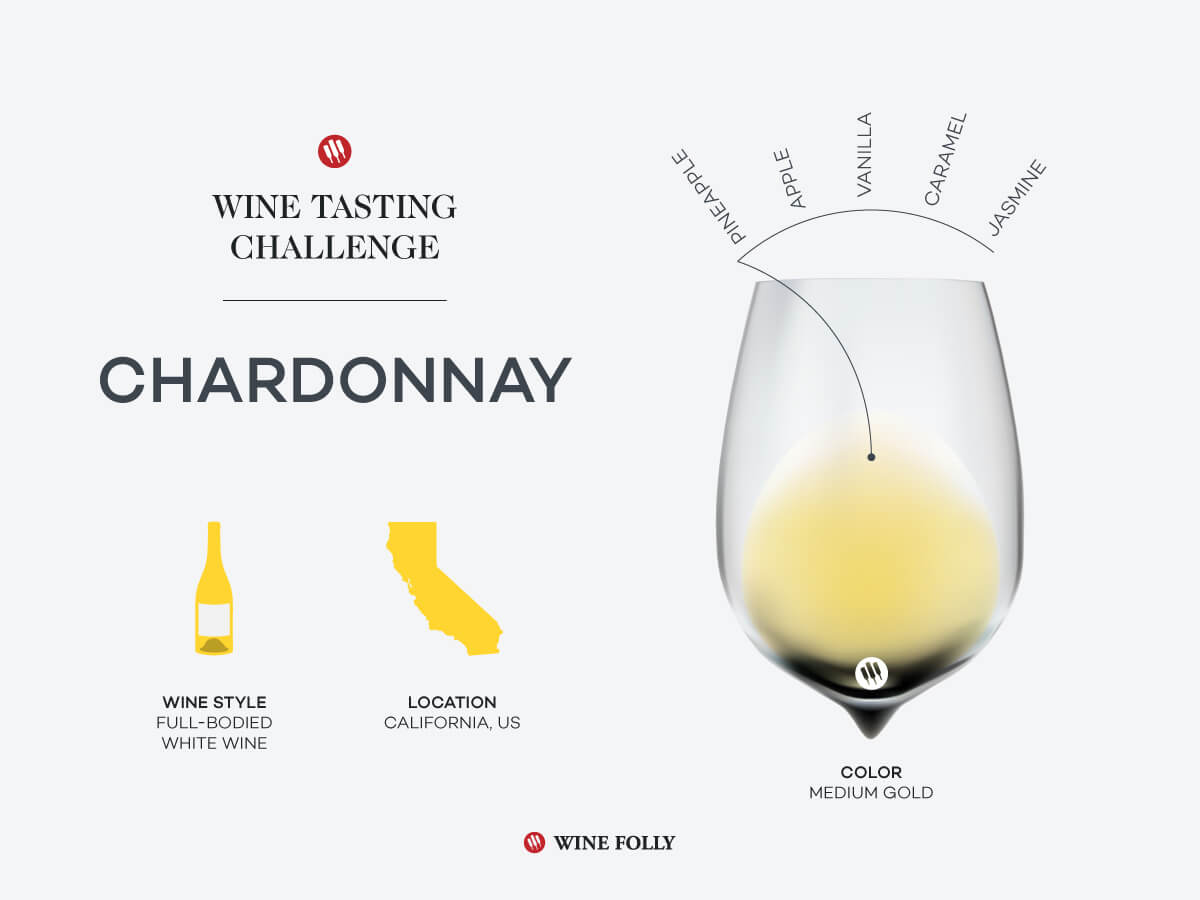Is there any wine in the world more argued over than Chardonnay? It’s one of the only grapes that has a cleverly negative acronym assigned to it: ABC (“Anything But Chardonnay”).
And yet, it’s responsible for some of the greatest wines in the world (Chablis, Champagne, etc.). Let’s taste one of its more popular iterations and find out.
What is the Tasting Challenge? The challenge is a way to improve your wine palate each week with 34 wines from 12 countries — The Wine Tasting Challenge.

There might not be a single grape in the world that’s more adaptable than Chardonnay. And there’s a reason for that: it can be grown just about anywhere. It’s one of the world’s most grown white grapes.
That leads to a lot of adaptability, and a lot of different styles of wine. So shouldn’t people be happy about that? Yay! A white wine that can fulfill just about any taste!
Well, not exactly.
In recent years there’s been a lot of push back on Chardonnay. Huge corporate labels overuse oak to create buttery, vanilla flavor that can cover up flaws.
It’s not that people are against oak, per se. But using cheap oak or (ugh) oak flavoring is also something you’ll see from the cheap-o stuff. It’s a strong element that eliminates all other aromas in the name of butter and vanilla.
And it’s popularly believed that California is the culprit. Overwhelmingly buttery and one-note, some of their wines make it hard to remember the glory of Chablis.
But to prove that complexity and delicious experiences are still avaialble through Chardonnay, we chose one from Lake County, a subregion of the North Coast known for its similarity to Napa.

2018 Shannon Ridge Chardonnay
Look: Medium gold.
Aromas: Notes of pineapple, apple, vanilla, jasmine, caramel, sassafras, and cantaloupe.
On The Palate: Pear, peach, and some buttery creaminess. A bit astringent at first, but it smoothes out on the finish with the subtle flavors of a caramel apple.
Food Pairing: I would love to try this with an apple pie. I feel like it would match it, beat for beat.
What We Learned About California Chardonnay
If many people think of stereotypical Chardonnay as overpowering butter and vanilla, this ain’t it.
There are notes of both, but they play along with the more fruity and juicy aspects: apple being one of them. In fact, the medley of sweet and savory tasted like nothing less than a caramel apple.
But there was still room for surprise. The acidity and the aromas combined to make some really unique aromas – sassafras, of all things! In fact, no joke, there was the faintest aroma of root beer candy. Not strong, but it was there.
So you can see where Chardonnay gets that bad reputation – even when you’re tasting one that’s lovely.
Last Impressions
Chardonnay is the chameleon of wine. It can take many flavors, and many shapes. Bubbly, still. Sweet, dry. Oaky, fruity.
When you’re a newbie wine drinker, it’s easy to pay too close of attention to the rolled eyes of those more experienced than you when they use adjectives like “buttery.”
But the key to great wine tends to be balanced. And when you find balance, there’s room for butter and vanilla and just about anything else.
Where did your Chardonnay come from? Just about everyone grows it, so let’s hear it from all the obscure corners of the world. Let us know what you’re tasting in the comments below!